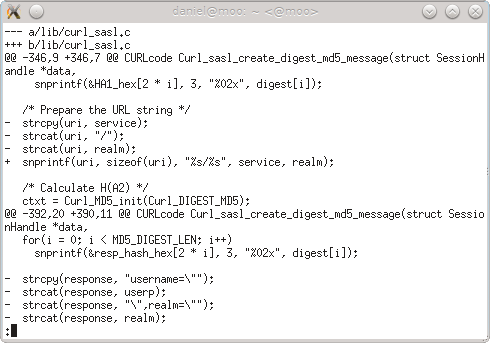 My “landline” phone in my house is connected over voip through my fiber and I’m using the service provided by Affinity Telecom. A company I never heard of before and I can only presume it is a fairly small one.
My “landline” phone in my house is connected over voip through my fiber and I’m using the service provided by Affinity Telecom. A company I never heard of before and I can only presume it is a fairly small one.
Everything is working out fine, apart from one annoying little glitch: every other month or so my phone reports itself as either busy to a caller (or just as if nobody picks up the phone) and the pingcom NetPhone Adapter 201E voip box I have needs to be restarted for the phone line to get back to normal (I haven’t figured out if the box or the service provider is the actual villain).
In my household we usually discover the problem after several days of this situation since we don’t get many calls and we don’t make many calls. (The situation is usually even notable on the voip box’s set of led lights as they are flashing when they are otherwise solid but the box is not put in a place where we notice that either.) Several days of the phone beeping busy to callers is a bit annoying and I’ve decided to try to remedy that somehow. Luckily the box has a web interface that allows me to admin it and check status etc, and after all, I know a tool I can use to script HTTP to the thing, extract the status and send me a message when it needs some love!
Okay, so I just need to “login” to the box and get the status page and extract the info for the phone line and I’m done. I’ve done this dozens if not hundreds of times on sites all over the net the last decade. I merrily transferred the device info page “http://pingcom/Status/Device_Info.shtml” with curl and gave it a glance…
Oh. My. God. This is a little excerpt from the javascript magic that handles the password I enter to login to the web interface:
/*
* Get the salt from the router
*/
(code gets salt from a local URL)
var salt = xml_doc.textdoc;
/*
* Append the password to the salt
*/
var input = salt + password;
/*
* MD5 hash of the salt.
*/
var hash = hex_md5(input);
/*
* Append the MD5 hash to the salt.
*/
var login_hash = salt.concat(hash);
/*
* Send the login hash to the server.
*/
login_request = new ajax_xmlhttp("/post_login.xml?user=" + escape(username) + "&hash=" +
escape(login_hash), function(xml_doc)
[cut]
Ugha! So it downloads a salt, does hashing, salting and md5ing on the data within the browser itself before it sends it off to the server. That’s is so annoying and sure I can probably replicate that logic in a script language of my choice but it is going to take some trial and error until the details are all sorted out.
Ok, so I do the web form login with my browser again and start to look at what requests it does and so on in order to be able to mimic them with curl instead. I then spot that when viewing that device info page, it makes a whole series of HTTP requests that aren’t for pictures and not for the main HTML… Hm, at a closer look it fetches data from a bunch of URLs ending with “.cgi”! And look, among those URLs there’s one in particular that is called “voip_line_state.cgi”. Let me try to get just that and see what that might offer and what funny auth dance I may need for it…
curl http://pingcom/voip_line_state.cgi
And what do you know? It returns a full XML of the voip status, entirely without any login or authentication required:
<LineStatus channel_count="2">
<Channel index="0" enabled="1">
<SIP state="Up">
<Name>0123456789</Name>
<Server>sip.example.org</Server>
</SIP>
<Call state="Idle"></Call>
</Channel>
<Channel index="1" enabled="0"></Channel>
</LineStatus>
Lovely! That ‘Idle’ string in there in the <Call> tag is the key. I now poll the status and check to see the state in order to mail myself when it looks wrong. Still needs to be proven to actually trigger during the problem but hey, why wouldn’t it work?
The final tip is probably the lovely tool xml2, which converts an XML input to a “flat” output. That output is perfect to use grep or sed on to properly catch the correct situation, and it keeps me from resorting to the error-prone concept of grepping or regexing actual XML. After xml2 the above XML looks like this:
/LineStatus/@channel_count=2 /LineStatus/Channel/@index=0 /LineStatus/Channel/@enabled=1 /LineStatus/Channel/SIP/@state=Up /LineStatus/Channel/SIP/Name=012345679 /LineStatus/Channel/SIP/Server=sip.example.org /LineStatus/Channel/Call/@state=Idle /LineStatus/Channel /LineStatus/Channel/@index=1 /LineStatus/Channel/@enabled=0
Now I’ll just have to wait until the problem hits again to see that my scripts actually work… Once proven to detect the situation, my next step will probably be to actually maneuver the web interface and reboot it. I’ll get back to that later..


 In this little piece I’ll explain why there won’t be any version 8 of curl and libcurl in a long time. I won’t rule out that it might happen at some point in the future. Just that it won’t happen anytime soon and explain the reasons why.
In this little piece I’ll explain why there won’t be any version 8 of curl and libcurl in a long time. I won’t rule out that it might happen at some point in the future. Just that it won’t happen anytime soon and explain the reasons why.

